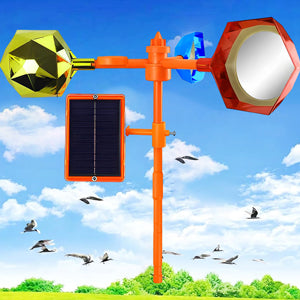
Why Punjab is best beekeeping state in India?
Share
Punjab is the leading state in beekeeping in India due to a combination of favorable factors, including:
-
Climate and Flora: Punjab has a temperate climate and a diverse range of flora, including a variety of flowering plants that provide bees with nectar and pollen. This abundant food source is essential for bee colonies to thrive and produce honey.
-
Agricultural Practices: Punjab is a major agricultural state, with a large area of cultivated land. This extensive agricultural landscape provides ample opportunities for beekeepers to place their hives near crops, ensuring pollination services for various crops.
-
Government Support: The Punjab government has been actively promoting beekeeping through various initiatives, such as providing subsidies for beehives and equipment, training programs for beekeepers, and research and development initiatives to improve beekeeping practices.
-
Tradition and Expertise: Beekeeping has been practiced in Punjab for generations, and the state has a strong tradition of beekeeping expertise. This expertise has helped to develop efficient beekeeping practices and techniques that contribute to the state's high honey production.
-
Market Demand: There is a strong demand for honey and other hive products in Punjab, both domestically and internationally. This demand provides beekeepers with a steady market for their products and encourages them to expand their operations.
Benefits of Beekeeping for Punjab Farmers
Beekeeping offers several benefits to Punjab farmers, including:
-
Supplementary Income: Beekeeping provides farmers with an additional source of income, which can supplement their earnings from crop cultivation. Honey, beeswax, and other hive products can be sold locally or exported for a profit.
-
Pollination Services: Bees play a crucial role in crop pollination, increasing fruit set and yield for various crops. Beekeepers can rent their hives to farmers to improve pollination services and enhance crop productivity.
-
Environmental Benefits: Beekeeping promotes biodiversity and environmental sustainability. Bees help to pollinate wild plants, contributing to a healthy ecosystem.
-
Low Investment: Beekeeping is a relatively low-investment enterprise, making it accessible to farmers with limited resources. The initial cost of beehives and equipment can be offset by government subsidies.
-
Empowerment: Beekeeping empowers farmers, especially women, by providing them with an additional income-generating opportunity and enhancing their livelihoods.
Impact of Beekeeping on Crop Yield in Punjab
Beekeeping has a significant impact on crop yield in Punjab. Bees contribute to the pollination of various crops, including mango, apple, almond, citrus, and mustard, leading to increased fruit set and yield. Studies have shown that bee pollination can increase crop yields by up to 30%.
In addition to pollination services, beekeeping also improves soil fertility and biodiversity, which further contributes to enhanced crop production. The presence of bees in an agricultural landscape promotes a healthy ecosystem, supporting sustainable farming practices.
Overall, beekeeping plays a vital role in Punjab's agricultural economy, providing farmers with an additional income source, enhancing crop yields, and promoting environmental sustainability. The state's commitment to beekeeping has made it a leader in the Indian beekeeping industry.















